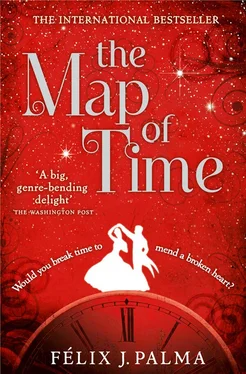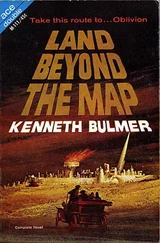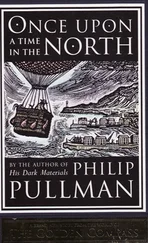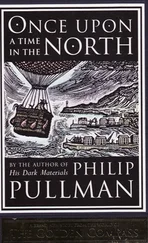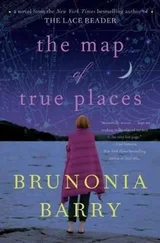Twenty-six was a good age to die, he reflected, contentedly fingering the bulge in his pocket. He had the gun. Now all he needed was a suitable spot in which to perform the ceremony. And there was only one possible place.
With the weight of the revolver in his pocket comforting him like a good-luck charm, he descended the grand staircase of the Harrington mansion in elegant Kensington Gore, a stone’s throw from the Queen’s Gate entrance to Hyde Park. He had not intended to cast any farewell glances at the walls of what had been his home for almost three decades, but he could not help feeling a perverse wish to pause before his father’s portrait, which dominated the hall. His father stared down at him disapprovingly from the gilt frame, a proud, commanding figure, bursting out of the old uniform he had worn as a young infantryman in the Crimean War until a Russian bayonet had punctured his thigh; the wound had left him with a disturbingly lopsided gait. William Harrington surveyed the world disdainfully, as though in his view the universe was a botched affair on which he had long since given up. What fool had been responsible for the untimely blanket of fog that had descended on the battlefield outside the besieged city of Sebastopol so that nobody could see the tips of the enemy’s bayonets? Who had decided that a woman was the ideal person to preside over England’s destiny? Was the east really the best place for the sun to rise?
Andrew had never seen his father without cruel animosity in his eyes so could not know whether he had been born with it or had been infected with it when fighting alongside the ferocious Ottomans in the Crimea. In any event, it had not vanished, like a mild case of smallpox, leaving no mark on his face, even though the path that had opened in front of him on his return could only have been termed a fortunate one. What did it matter that he had to hobble along it with the aid of a stick? Without having had to enter any pact with the Devil, the man with the bushy moustache and clean-cut features depicted on the canvas had overnight become one of the richest men in England. Trudging around in that distant war, bayonet at the ready, he could never have dreamed of possessing a fraction of what he now owned. How he had amassed his fortune, though, was one of the family’s best-kept secrets, a complete mystery to Andrew.
The tedious moment is now approaching when the young man must decide which hat and overcoat to pick from among the heap in the hall cupboard: one has to look presentable even for death. This is a scene that, knowing Andrew, could take several exasperating minutes and, since I see no need to describe it, I shall take the opportunity to welcome you to this tale, which has just begun, and which, after lengthy reflection, I chose to begin at this juncture and not another – as though I, too, had to select a single beginning from among the many jostling for position in the closet of possibilities.
Assuming you stay until the end, some of you, no doubt, will think I chose the wrong thread with which to begin spinning my yarn, and that for accuracy’s sake I should have respected chronological order and begun with Miss Haggerty’s story. Perhaps so – but there are stories that cannot begin at their beginning, and this may be one of them.
So, let’s forget about Miss Haggerty for the moment, forget that I ever mentioned her, even, and go back to Andrew, who has just stepped forth from the mansion suitably dressed in a hat and coat, and even a pair of warm gloves to protect his hands from the harsh winter cold.
Once outside the mansion, the young man paused at the top of the steps, which unfurled at his feet like a wave of marble down to the garden. From there, he surveyed the world in which he had been brought up, suddenly aware that, if things went to plan, he would never see it again. Night was spreading its veil over the Harrington residence. A hazy full moon hung in the sky, bathing in its soft glow the immaculate lawns surrounding the house, most of them cluttered with flowerbeds, hedges and oversized stone fountains – dozens of them – decorated with excessively ornate sculptures of mermaids, fauns and other mythical creatures. His father had accumulated such a large number because, an unsophisticated soul, his only way of showing off his importance was to buy a lot of expensive and useless objects. In the case of the fountains his extravagance was excusable, because they combined to soothe the night with their watery refrain, making the listener want to close his eyes and forget everything except their hypnotic burble.
Further off, beyond the neatly clipped lawns, stood the immense greenhouse, graceful as a swan poised for flight, where his mother spent most of the day marvelling at the exotic flowers that sprouted from seeds brought back from the colonies.
Andrew gazed at the moon for several minutes. He wondered whether man would ever be able to travel there, as had the characters in Jules Verne and Cyrano de Bergerac’s works. What would he find if he did manage to land on its shimmering surface – in an airship, or shot out of a cannon, or with a dozen bottles of dew strapped to his body in the hope that, as it evaporated, he would float up to the sky, like the Gascon swashbuckler’s hero? Ariosto the poet had turned the planet into a warehouse where lunatics’ reason was stored in phials, but Andrew was more drawn to Plutarch, who imagined that the moon was where dead people dwelled. Andrew liked to picture them living at peace in ivory palaces built by an army of worker angels or in caves dug out of that white rock, waiting for the living to receive their safe-conduct to death and to carry on their lives anew, exactly where they had left off.
Sometimes he imagined that Marie was living at that very moment in one of those grottoes, oblivious to what had happened to her, and grateful that death had offered her a better existence than life. Marie, pale in that white splendour, waiting patiently for him to decide once and for all to blow his brains out and come to fill the empty space in her bed.
He stopped gazing at the moon when he noticed that Harold, the coachman, had followed his orders and was standing at the foot of the stairs with a brougham at the ready. As soon as he saw his young master descending the flight of steps, the coachman rushed to open the carriage door. Andrew had always been amused by Harold’s display of energy, considering it incongruous in a man approaching sixty, but the coachman clearly kept in good shape.
‘Miller’s Court,’ the youth commanded.
Harold was astonished by his request. ‘But, sir, that’s where—’
‘Is there some problem, Harold?’ Andrew interrupted.
The coachman stared at him for a moment, his mouth hanging ludicrously half open, then recollected himself: ‘None whatsoever, sir.’
Andrew gave a nod, signalling that the conversation was at an end. He climbed into the brougham and sat down on the red velvet seat. Glimpsing his reflection in the window, he gave a sigh of despair. Was that haggard countenance really his? It was the face of someone whose life had been seeping out of him unawares, like a pillow losing its stuffing through an open seam.
In a certain sense this was true. Although his face retained the harmonious good looks he had been born with, it now resembled an empty shell, a vague impression in a mound of ashes. The sorrow that had cast a shadow over his soul had taken its toll on his appearance: he could scarcely recognise himself in the ageing youth, with hollowed cheeks, downcast eyes and unkempt beard, who stared back at him in the glass. Grief had stunted him, transforming him into a dried-up, sullen creature.
The brougham rocked as Harold, having overcome his astonishment, clambered up to his perch, and took Andrew’s attention away from the blurred face sketched on the canvas of the night. The final act of the disastrous performance that had been his life was about to begin, and he was determined to savour every moment. He heard the whip crack above his head and, caressing the steely bulge in his pocket, he let himself be lulled by the vehicle’s gentle sway.
Читать дальше
